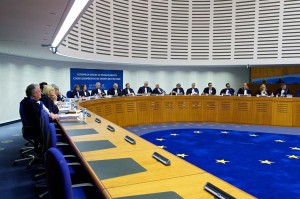
The European Court of Human Rights (ECtHR), in the case of Söyler v. Turkey, no. 29411/07, Judgment of 17 September 2013, has held that Turkey’s ban on convicted prisoners’ voting rights violates Article 3 of Protocol No. 1 (right to free elections) to the European Convention on Human Rights. [ECtHR Press Release]
Disenfranchisement under Turkish Law
Turkish law dictates that persons convicted of an intentional commission of an offence are unable to vote while serving a term of incarceration. Söyler v. Turkey, no. 29411/07, Judgment of 17 September 2013, paras. 13-14. Voting rights will not be reinstated until the completion of the prison sentence. Id., para. 14. For purposes of Turkey’s Criminal Code, the date of completion of a prison sentence is the last day of the prison sentence handed down by the criminal court, not the date of conditional release. Id., para. 16. Disenfranchisement is an automatic consequence of the statute, and a judge has no discretion to alter such terms. Id., para. 39.
Applicant’s Position Before the Chamber
Mr. Söyler is a Turkish national who was convicted of drawing checks without having sufficient funds in his bank account and was sentenced to a term of nearly five years’ imprisonment. Id., para. 6. After serving two years of his sentence, which be began serving on 11 April 2007, he was released on probation. Id., para. 7. While serving his prison sentence, he wrote to Turkey’s High Council for Elections, which informed him that he was not allowed to vote. Id., para. 8. This prohibition meant he was not allowed to vote in the 2007 general election during his time in prison and he was also not allowed to vote in the 2011 general election after his conditional release. Id., paras. 10-11.
Mr. Söyler thus argued that his disenfranchisement breached Article 3 of Protocol No. 1, which provides: “The High Contracting Parties undertake to hold free elections at reasonable intervals by secret ballot, under conditions which will ensure the free expression of the opinion of the people in the choice of the legislature.” Id., para. 21. He alleged that Turkey’s national legislation did not take into account the nature of the offense or the severity of the punishment, and was therefore disproportionate in its application. Id., para. 26.
Chamber’s Judgment
The Court agreed with Mr. Söyler and found that the indiscriminate and automatic ban on prisoners’ voting rights did not account for the nature or gravity of the offense, the length of the prison sentence, or the prisoner’s individual conduct or circumstances. Id., paras. 35, 41.
The Court first acknowledged that the rights enshrined in Article 3 of Protocol No. 1 are not absolute, as each Contracting State does have a margin of appreciation to organize electoral systems in line with the State’s democratic vision. Id., para. 33. However, the Court must be satisfied that the State complies with the minimum requirements of Article 3 of Protocol No. 1. Id. First, legislation must not curtail the rights in question so as to impair the very existence and effect of the right; second, legislation must be imposed in pursuit of a legitimate aim; and third, the means employed must not be disproportionate to that aim. Id., para. 34. Any conditions t imposed must “maintain the integrity and effectiveness of an electoral procedure aimed at identifying the will of the people through universal suffrage.” Id.
Previous cases decided by the European Court , such as Hirst (no. 2) v. the United Kingdom [GC], Frodl v. Austria, and Scoppola (no. 3) v. Italy, also raised the issue of prisoners’ voting rights. The tribunal’s jurisprudence on this issue has recognized that restrictions on prisoners’ right to vote are not per se incompatible with Article 3 of Protocol No. 1., but that general, automatic and indiscriminate bans fall short of the Convention’s requirements. See id., paras. 35, 37. In its judgment in Söyler v. Turkey, the Court explained, however, that Turkey’s restriction is especially wide-reaching because the ban applies even after a convicted individual’s conditional release, as well as to individuals given suspended sentences who thus do not serve a prison term. Id., para. 38.
While the Court considered Turkey’s argument that the restriction on voting would help encourage citizen-like conduct, the Court noted that Turkey did not explain how banning all persons convicted of intentionally committing offences from voting was reconcilable with the goals of Article 3 of Protocol No. 1. Id., paras. 37, 42. The Court then stated that Mr. Söyler’s case illustrates the “indiscriminate application of the restriction even to persons convicted of relatively minor offences.” Id., para. 44. The Court was thus unable to find the necessary connection between the sanction of disenfranchisement and Mr. Söyler’s conduct and circumstances. Id., para. 45. The Court therefore concluded that Turkey exceeded its room for manoeuvre under the Convention by imposing such a harsh measure on the electoral rights of convicted individuals. Id., para. 47.
For more information on the ECtHR’s caselaw on this topic, see its Prisoners’ right to vote factsheet.
Procedural Posture
According to articles 43 and 44 of the Convention, the Court’s decision is not yet final because either party may request that the case be referred to the Grand Chamber within a three-month period following the date of the judgment. If a panel of five judges subsequently accepts the request, then the Grand Chamber will decide the case by means of a judgment.
